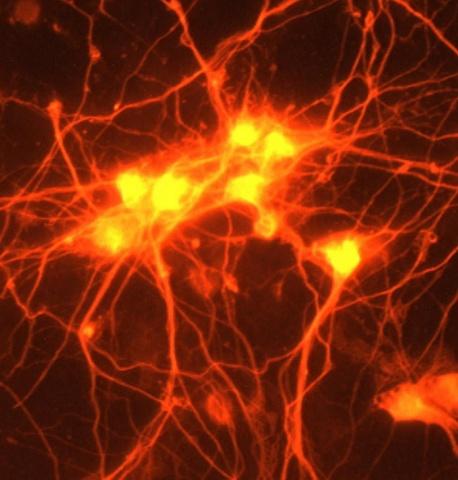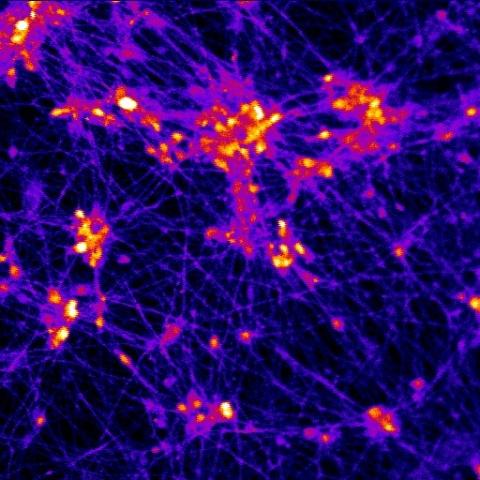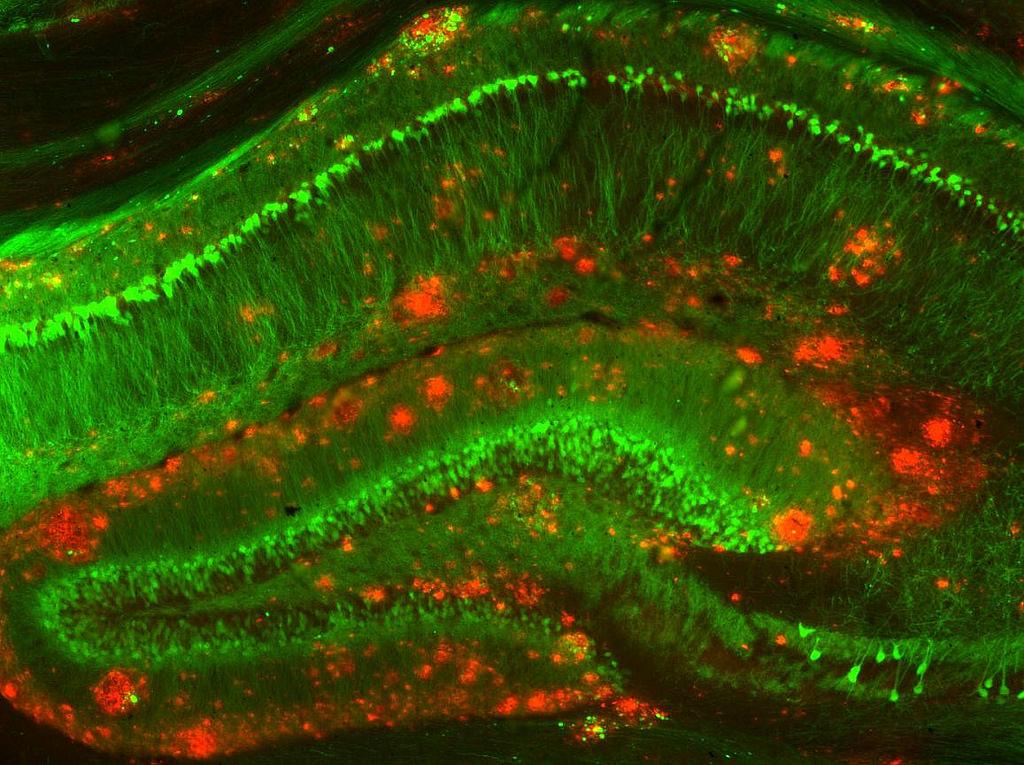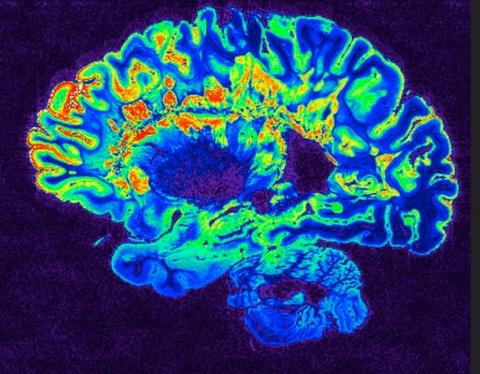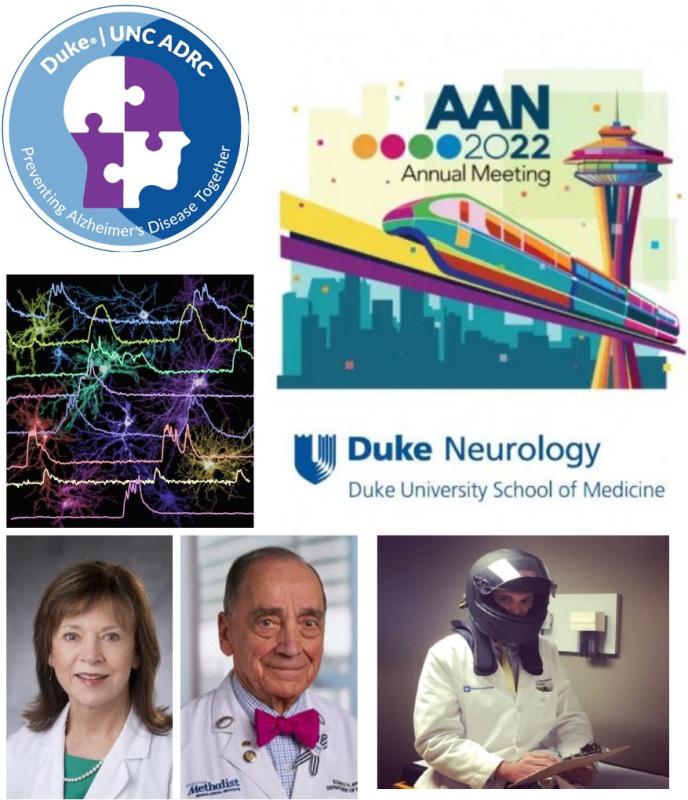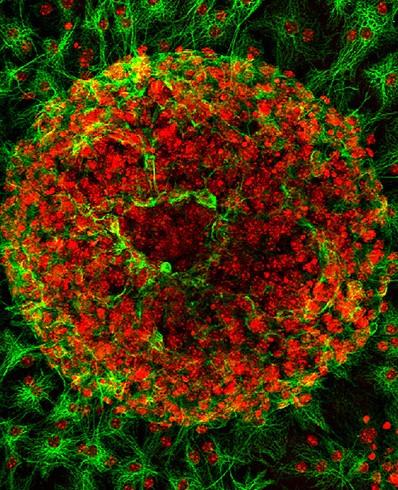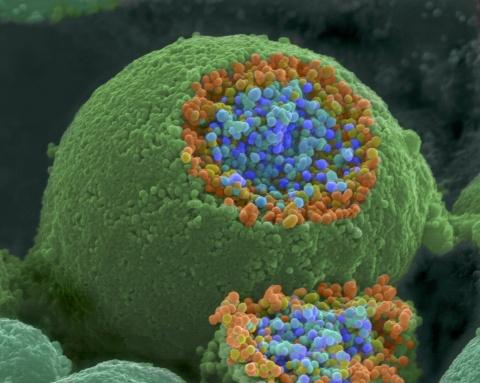Duke Neurology Research Round Up, October 2023
The month of September saw 20 new peer-reviewed journal articles articles and one book chapter from members of the Duke Neurology Department.
Duke Neurology Research Round Up, June 2023
This May, members of the Duke Neurology Department contributed to 12 new peer-reviewed journal articles. Highlights of this research include the first study to examine trauma-associated sleep disorder among U.S. veterans, the development of a highly sensitive microscopic technique to identify the regions in the brain where seizures begin, and a small but innovative trial showing early promise for a potential alternative therapy for amyotrophic lateral sclerosis (ALS).
Duke Neurology Research Round Up, April 2023
This March, new research from members of the Duke Neurology Department advanced our missions of patient care, translational and clinical research, and neurology training, contributing to 16 new peer-reviewed journal articles.
Duke Neurology Research Round Up, February 2023
Members of the Duke Neurology Department got the new year off to a fast start this January, contributing to 10 new peer-reviewed journal articles. Rick Bedlack, MD, PhD, was the senior author of three new publications investigating potential new therapies for amyotrophic lateral sclerosis (ALS).
Duke Neurology Research Round Up, January 2023
The final month of 2022 saw the release of 12 new peer-reviewed journal articles written or co-written by members of the Duke Neurology Department. Highlights of our most recent publications include an evaluation of a training program designed to improve the delivery of epilepsy care in Uganda, a review of recent advances in the treatment of carpal tunnel syndrome, and a discussion of treatment options for the autoimmune condition known as neuromyelitis optica spectrum disorder (NMOSD).
Duke Neurology 2022: A Year in Review (Part 1 of 2)
The Duke Neurology Department continued to grow and advance its missions of patient care, research, and training the next generation of neurology providers in 2022. Highlights from the first half of our calendar year include national and Duke-wide awards recognizing our faculty’s contributions to the field of diversity, inclusion, and neurology as a whole. The same period also saw the growth of the new Duke/UNC Alzheimer’s Disease Research Center and three of our neurologists don helmets and get in their racing care.
Unlocking the Secrets of Neurodegenerative Diseases
Duke Health leadership launched Translating Duke Health in 2017 as a multi-disciplinary, multi-year commitment to capitalize on Duke’s collective strengths in research, clinical care, and population health to address major health challenges.
Duke Neurology Research Round Up, September 2022
Members of the Duke Neurology Department contributed to 12 new peer-reviewed journal articles published this August. Highlights include a review article examining evoked potentials used for deep brain stimulation in Parkinson’s, the healthcare received by veterans with epilepsy, the optimal stroke treatments for patients with cerebral venous thrombosis, and other topics.
Duke Neurology Research Round Up, August 2022
Members of the Duke Neurology Department contributed to eight articles and two correspondence letters published in peer-reviewed journals this July.
U.S. News & World Report ranks Duke University Hospital 23rd in nation for Neurology & Neurosurgery
U.S. News & World Report ranked Duke University Hospital as the top hospital in North Carolina and the 23rd best across the nation for neurology and neurosurgery in its 2022-2023 hospital rankings. The annual rankings, which assessed more than 4,500 hospitals nationwide, analyze and integrate dozens of medical and surgical services.
